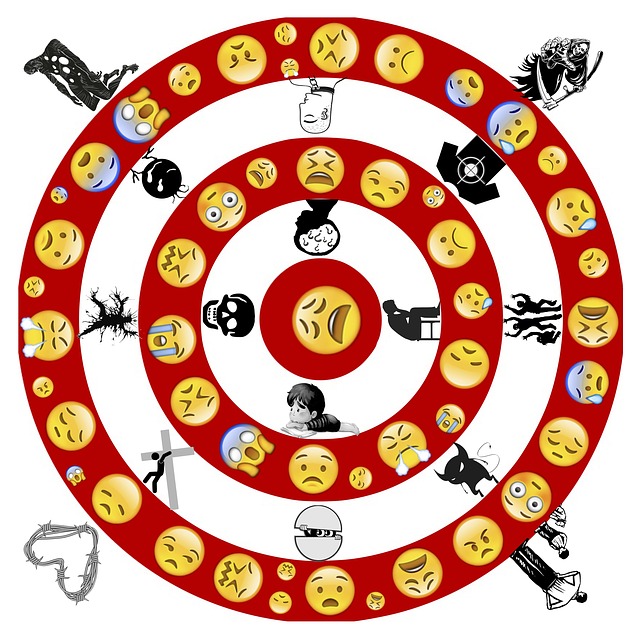Emotional intelligence (EI) has emerged as a crucial aspect of mental health and well-being. EI refers to the ability to recognize, understand, and manage one’s own emotions, as well as those of others. It involves empathy, self-awareness, social skills, and adaptability. Research indicates that individuals with high levels of emotional intelligence are more likely to experience success in both their personal and professional lives.
So what promotes emotional intelligence? While some may argue that EI is an innate trait that cannot be developed or learned, studies suggest otherwise.
In fact, there are several factors that can contribute to the enhancement of EI skills such as mindfulness practices, effective communication skills training, cognitive-behavioral therapy (CBT), and positive psychology interventions. This article will explore these factors in detail while highlighting the importance of cultivating emotional intelligence in our daily lives.
Defining Emotional Intelligence
 Emotional intelligence is a vital aspect of mental health and wellbeing. It refers to the capacity to recognize, understand, manage, and express emotions effectively in oneself and others.
Emotional intelligence is a vital aspect of mental health and wellbeing. It refers to the capacity to recognize, understand, manage, and express emotions effectively in oneself and others.
The concept has gained considerable attention over recent decades due to its importance and applications in various fields such as education, business, healthcare, and psychology.
In particular, emotional intelligence plays a crucial role in leadership skills. Leaders with high levels of EI can better perceive their employees’ emotions, needs and concerns while also managing their own reactions during challenging situations. This allows them to communicate more effectively with their team members and inspire positive change within an organization.
Moreover, individuals who possess strong emotional intelligence are better equipped to navigate interpersonal relationships successfully. They have greater empathy towards others which enables them to establish deeper connections with people around them. Additionally, they tend to be more self-aware and able to regulate their emotions better – leading to healthier personal relationships.
Overall, Emotional Intelligence is a powerful tool that impacts multiple facets of life. By developing this skillset through intentional practice and growth mindset strategies like mindfulness or cognitive-behavioral therapy techniques – individuals can enhance their ability for success both personally and professionally without compromising authenticity or integrity along the way.
The Benefits Of Emotional Intelligence
Emotional intelligence is a buzzword that’s been making rounds in the field of mental health for some time now. We’ve all met those individuals who seem to have it all – they’re adept at handling difficult situations, manage stress better than most people, and are empathetic towards others. These qualities stem from high emotional intelligence or EQ.
The importance of EQ in the workplace cannot be emphasized enough. Employees with high EQ make strong leaders, can handle conflicts effectively without causing disruptions in work culture, and foster positive relationships amongst colleagues. Companies that prioritize EQ development report lower attrition rates and higher levels of productivity among employees.
Developing EQ in children is equally crucial as it lays the foundation for their future interpersonal relationships. Children with higher EQ tend to perform better academically, exhibit improved behavior patterns, and are more resilient when faced with stressful situations. Teaching empathy, active listening skills, and encouraging self-reflection can help develop a child’s emotional intelligence.
In summary, emotional intelligence has far-reaching benefits across different aspects of life such as personal relationships, academics, career growth, and overall well-being. Therefore individuals must invest time in developing their own EQ by practicing mindfulness techniques like meditation or therapy sessions focused on improving emotional regulation skills.
A society that values emotional intelligence will undoubtedly lead to healthier communities where conflict resolution becomes easier due to better communication skills honed through years of experience with thoughtful introspection about one’s emotions alongside an understanding of how others feel too!
Mindfulness Practices
One of the practices that can promote emotional intelligence is mindfulness. Mindfulness involves being present in the moment and aware of one’s thoughts, feelings, and bodily sensations without judgment or distraction. This practice has been shown to increase self-awareness, which is a key component of emotional intelligence.
One way to incorporate mindfulness into daily life is through mindful breathing exercises. These involve focusing on the breath as it moves in and out of the body, noticing any distractions or thoughts that arise and gently bringing attention back to the breath. Research suggests that regular practice of this technique can improve emotional regulation and reduce stress levels.
Another practice that promotes emotional intelligence is gratitude journaling. This involves reflecting on experiences or people for whom one feels grateful and writing them down in a notebook or journal. Studies have found that individuals who engage in regular gratitude journaling tend to be more optimistic, experience greater positive emotions, and are less likely to suffer from depression.
Incorporating these practices into daily routines can help promote emotional intelligence by increasing self-awareness, regulating emotions, reducing stress levels, cultivating positive emotions such as gratitude and optimism, improving interpersonal relationships with others, and promoting overall well-being.
It is important to note that these practices should not replace professional mental health treatment but can serve as complementary tools for managing emotions and improving overall psychological functioning.
Effective Communication Skills Training
Developing effective communication skills is crucial in promoting emotional intelligence. Effective communication involves the ability to express oneself clearly, listen actively and empathetically, and understand others’ perspectives. This skillset can be honed through training programs that incorporate role-playing exercises and active listening techniques.
Role-playing exercises are an essential component of effective communication skills training as they allow individuals to practice various scenarios where strong communication skills are required. During role-play sessions, participants learn how to communicate with different personality types, handle difficult conversations, and resolve conflicts amicably. Role-plays enable participants to experience real-life situations within a safe environment without fear of judgment or negative consequences.
Active listening techniques form another vital aspect of effective communication skills training. Active listening requires one’s full attention on what someone else is saying without interrupting them or making assumptions about their thoughts or feelings. It entails asking open-ended questions for clarification, summarizing what was said, and reflecting back the speaker’s emotions accurately. Participants who master active listening have better interpersonal relationships due to their improved understanding of others’ needs and points of view.
Improving effective communication skills promotes emotional intelligence by enabling individuals to connect with themselves and those around them meaningfully. Through role-playing exercises and active listening techniques, people can enhance their ability to communicate effectively in personal and professional settings alike. Therefore, it is imperative for mental health professionals to include these critical components in their training programs aimed at enhancing emotional intelligence among clients.
Cognitive-Behavioral Therapy
Cognitive-behavioral therapy (CBT) is a therapeutic approach that aims to improve individuals’ emotional intelligence by addressing their negative thought patterns and behaviors.
CBT techniques help individuals recognize harmful thoughts and replace them with more positive ones, leading to improved emotional regulation.
One of the main goals of CBT is to teach individuals how to identify and challenge their negative cognitive distortions. By learning how to do this, they can develop healthier perspectives on themselves, others, and their experiences.
This leads to better emotional regulation because it helps people respond to challenging situations in a more balanced way.
Another important aspect of CBT is teaching individuals coping strategies for managing difficult emotions. This includes skills such as relaxation techniques, mindfulness practices, and problem-solving skills.
These strategies empower people to take control of their emotions instead of feeling helpless or overwhelmed by them.
Overall, CBT offers numerous benefits for improving emotional intelligence through its focus on identifying negative thought patterns and developing effective coping mechanisms. With continued practice and support from mental health professionals or self-help resources, individuals can become more adept at recognizing their emotions and responding to them in healthy ways.
Positive Psychology Interventions
As human beings, we all have the innate ability to feel emotions. Emotional intelligence is a critical aspect of our lives that helps us identify and manage our feelings effectively. Developing emotional intelligence requires deliberate effort and can be facilitated by various interventions like positive psychology techniques.
One such intervention that promotes emotional intelligence is the practice of gratitude. Gratitude practices involve intentionally focusing on the good things in our lives and expressing appreciation for them regularly. This technique fosters positive emotions like happiness, contentment, and satisfaction, which are essential components of emotional intelligence.
Another effective intervention is self-compassion techniques. Self-compassion refers to treating oneself with kindness, understanding, and acceptance when faced with difficult situations or personal failures. It involves recognizing that setbacks are part of life rather than a reflection of one’s worth as a person. By cultivating self-compassion, individuals develop resilience and enhance their emotional awareness and regulation abilities.
Incorporating these interventions into daily life has shown significant effects on promoting emotional intelligence levels among individuals. Research findings suggest that practicing gratitude techniques improves subjective well-being while reducing symptoms of depression and anxiety disorders.
Similarly, research also indicates that engaging in self-compassionate behaviors leads to improved mental health outcomes like reduced stress levels and increased overall psychological functioning.
Therefore, incorporating positive psychology interventions like gratitude practices and self-compassion techniques may promote emotional intelligence development within individuals’ lives significantly. These techniques foster positivity, resilience against negative emotions, greater empathy towards others, improved communication skills while leading to enhanced social connectedness between people from diverse backgrounds – vital aspects required for an emotionally intelligent individual in today’s world.
Cultivating Emotional Intelligence In Daily Life
Developing emotional intelligence is an ongoing process that can be integrated into daily life. One effective method of cultivating emotional intelligence is through mindful listening.
Mindful listening involves being fully present and attentive during conversations with others, without letting distractions or preconceived notions interfere. This allows individuals to better understand the emotions underlying someone’s words, which enhances their ability to respond empathetically.
Another way to build empathy and cultivate emotional intelligence is by engaging in activities specifically designed for this purpose. Activities such as volunteering at a homeless shelter or participating in group therapy sessions provide opportunities to connect with people from diverse backgrounds and experiences.
These interactions allow individuals to gain insight into different perspectives, broaden their understanding of human emotionality, and learn how to communicate effectively with others.
It is important not only to focus on building emotional intelligence outwardly but also inwardly. Practicing self-reflection helps individuals become more aware of their own emotions and behaviors, allowing them to identify triggers that may cause negative reactions.
Engaging in mindfulness practices such as meditation or yoga can help regulate emotions while improving cognitive abilities like attention span and memory retention.
Overall, developing emotional intelligence requires consistent effort and practice over time. By incorporating techniques such as mindful listening, empathy-building activities, self-reflection, and mindfulness practices into daily life, individuals can improve their ability to navigate complex social situations with greater ease and sensitivity towards others’ needs.
Frequently Asked Questions
How Does Emotional Intelligence Differ From Iq Or Academic Intelligence?
Emotional intelligence differs from academic intelligence or IQ in that it focuses on the ability to recognize, understand and manage one’s own emotions as well as those of others.
While academic intelligence is measured through standardized tests and academics achievements, EI relies on social skills, empathy, and self-awareness which are all necessary for effective leadership.
Research has shown that individuals with high levels of EI have better interpersonal relationships both at work and in their personal lives.
It is important to note that unlike academic intelligence which remains relatively stable throughout life, emotional intelligence can be developed through various methods such as coaching and training programs.
Can Emotional Intelligence Be Learned Or Is It Something One Is Born With?
The debate over the nature vs. nurture aspect of emotional intelligence has long been a topic for discussion among mental health experts and researchers.
While some argue that individuals are born with innate emotional intelligence, others believe it can be learned and developed over time through effective teaching methods.
Effective ways to teach emotional intelligence include incorporating social-emotional learning programs in schools, using role-playing exercises to practice empathy and communication skills, and providing feedback on emotional responses.
Ultimately, whether one is born with emotional intelligence or not, there are various strategies available to help develop this important trait throughout life.
What Are Some Common Barriers To Developing Emotional Intelligence?
Overcoming barriers to developing emotional intelligence can be challenging, but not impossible.
One common barrier is the lack of knowledge and understanding about emotions themselves. Without this foundation, it’s difficult for individuals to recognize and regulate their own emotions, let alone respond appropriately to others’.
Another obstacle may be resistance to change or fear of vulnerability, which prevents people from practicing emotional regulation techniques such as mindfulness, self-reflection, and empathic listening.
Additionally, societal norms that stigmatize emotional expression or prioritize cognitive abilities over emotional ones can hinder one’s growth in this area.
However, with proper education and support, these barriers can be addressed and overcome.
Are There Any Negative Consequences To Having High Emotional Intelligence?
While emotional intelligence has been touted as an important trait for success and positive interpersonal relationships, there is a growing body of research examining its potential dark side.
One such negative consequence is burnout, whereby individuals with high levels of emotional intelligence may be more susceptible to experiencing exhaustion and depleted resources due to their heightened sensitivity to others’ emotions and needs.
Additionally, the tendency towards empathy and compassion that often accompanies emotional intelligence can lead to over-investment in the well-being of others at one’s own expense, potentially leading to feelings of stress or even depression.
It is important for individuals with high levels of emotional intelligence to engage in self-care practices and boundaries to prevent these negative consequences from occurring.
Can Technology Or Social Media Impact Emotional Intelligence?
The rapid advancements in technology and social media have transformed the way individuals communicate, engage with others, and process information. However, questions arise if these technological innovations impact emotional intelligence – a crucial component of mental wellness.
The influence of role modeling on the development of emotional intelligence is well-documented. Mindfulness practices that encourage self-reflection and introspection may also improve one’s ability to regulate emotions effectively.
Nevertheless, research examining how technology or social media affects emotional intelligence remains limited. Further studies are necessary to explore the potential benefits and drawbacks of utilizing these novel tools to enhance emotional awareness and expression.
Conclusion
Emotional intelligence is the ability to identify, understand and manage emotions in oneself and others. It differs from IQ or academic intelligence as it focuses on social skills, empathy and self-awareness.
While some argue that EI is innate, research suggests that it can be developed through training and practice.
However, there are common barriers to developing EI such as societal norms that discourage emotional expression or a lack of role models who demonstrate healthy emotional regulation. Additionally, high levels of stress or trauma can hinder one’s ability to process emotions effectively.
Despite the benefits of having high EI – including better relationships, improved mental health and increased job success – there may also be negative consequences such as feeling overwhelmed by others’ emotions or struggling with boundary-setting.
Furthermore, technology and social media have been shown to impact our emotional intelligence both positively and negatively. On one hand, they provide opportunities for connection and empathy-building. On the other hand, they can lead to decreased face-to-face interaction and over-reliance on digital communication which may impede our ability to read nonverbal cues accurately.
In conclusion, while the development of EI requires effort and dedication, it is an important skillset for navigating interpersonal relationships in our personal and professional lives. By recognizing potential barriers and utilizing resources like therapy or group support, we can cultivate greater awareness of ourselves and others to improve our quality of life.









